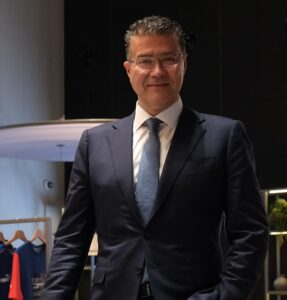“EGE OLIVE AND OLIVE OIL EXPORTERS REWARDED PACKAGED EXPORTS. The olive oil sector aims for $1.5 billion in exports.
The Aegean Olive and Olive Oil Exporters Association (EZZIB), the sole umbrella organization for olive and olive oil exporters in Turkey, convened for the 2023 Fiscal General Assembly. The General Assembly of EZZIB addressed the agenda items of the sector.
The General Assembly of EZZIB also hosted the “EZZIB Export Stars Awards Ceremony,” where the top 10 companies in the packaged category for table olive and olive oil exports received awards.
Davut Er, President of the Aegean Olive and Olive Oil Exporters Association, stated, “In the 2022/23 season, we achieved record-breaking export figures, reaching the highest export numbers in the sector’s history. Our table olive exports increased by 7% in value compared to the previous season, rising from $172 million to $184 million. In the 2022/23 olive oil export season that began on November 1, we exported to 118 countries, with our total olive oil exports increasing by 158% in quantity from 58,000 tons to 150,000 tons and by 259% in value from $201 million to $723 million.”
“We broke records in the 2022/23 export season,” President Er said. “In that season, where we became the world leader in table olive production and the second-largest producer of olive oil after Spain, our total sector exports reached $947 million, and our sector gained a significant place in global markets. Despite the export restrictions imposed on bulk and barrel olive oil at the end of July, I congratulate all our members who contributed to this increase wholeheartedly and thank them for their contributions to our sector. We aim to increase this figure to $1.5 billion within the next few years and to $2 billion by 2028.”
“Our table olive exports increased to $114 million in the 2023/24 season,” Davut Er said. “As of March 31, 2024, our table olive exports increased by 18% in value compared to the previous season, rising from $96 million to $114 million. As for the first five months of the olive oil export season ending on March 31, 2024, we sadly see a 62% decrease in quantity from 81,000 tons to 31,000 tons and a 36% decrease in value from $358 million to $228 million. If the restrictions on bulk and barrel olive oil exports continue, it will cause irreparable damage to our sector. As of August 1, 2023, additional measures were imposed on bulk and barrel olive oil exports, restricting their exports until November 1. On October 17, 2023, the duration of these restrictions was extended indefinitely.”
“In the 2022/23 season, Turkey entered with approximately 50,000 tons of olive oil stocks,” President Er said. “Taking into account the 50,000 tons of olive oil from Afrin, our olive oil supply reached around 500,000 tons. With 175,000 tons for domestic consumption and 150,000 tons for exports, we entered the 2023/24 season with approximately 140,000 tons of surplus stock. When we add up the 140,000 tons of surplus stock, the 185,000 tons of yield, and the 50,000 tons of olive oil from Afrin for the 2023/24 season, our olive oil supply totals 375,000 tons. We expect 100,000 tons of exports and 175,000 tons of domestic consumption in the 2023/24 season, which means we will enter the 2024/25 season with a minimum of 100,000 tons of stock.”
“We are receiving very good news about the approaching very good crop yield,” Davut Er said. “As of today, from the south to the north, from the west to the east of Turkey, 200 million olive trees have bloomed and turned white for the year 2024. We are hearing the good news of an approaching very good crop yield from every corner of our country. There is absolutely no shortage in Turkey’s olive oil supply. The export restrictions imposed four times on olive oil in the last three years, intended to slow down price increases, were not effective enough and, on the contrary, raised expectations for producers and suppliers. Because of the insufficient supply of goods, the market faced more difficulties and became blocked. Olive oil prices rose even more during the periods of restriction.”
“Considering the low support provided to producers in our country,” President Er said, “it is critical to continue with a new support method instead of the export subsidies abolished at the end of 2022 in order to compete with EU member countries like Italy and Spain. As I mentioned before, olive oil prices are rapidly returning, and if the climate conditions continue like this for the next season, a very strong olive and olive oil yield awaits us. In this environment, it is our request as a sector to lift the $200 per ton tax imposed on bulk and barrel olive oil exports, along with the imposition of restrictions, to enable our exporters to be competitive in world markets.”
“Sustainable production techniques should be adopted,” Davut Er said. “We will continue our activities for the promotion of Turkish olive and olive oil abroad, especially to distant markets like Australia. While working to achieve our export targets, we are also promoting environmentally friendly, energy-efficient, and socially responsible sustainable production techniques. However, for us to achieve all these goals, it is of great importance that sector stakeholders come together, cooperate, and collectively find solutions to the challenges our sector faces.”
“I announced that Turkey made significant investments in the olive sector after 2002,” President Er said. “With state support, our olive tree stock, which was 90 million, has increased to 200 million. We have also started to get the expected yield from these trees recently. According to the calculations of our Ministry of Agriculture and Forestry, Turkey has the potential to produce 650,000 tons of olive oil and 1.2 million tons of table olives. We believe that a plan for the utilization of this yield should be made from today. We, along with our Board of Directors, are working intensively to increase our exports and to ensure that our exporters and producers earn more. In this regard, we are aware of the difficulties, especially in bulk and barrel exports in recent times. We are in close contact with the Ministry of Trade, as well as the Ministry of Agriculture and Forestry, and our discussions continue to open the way for our exports. We believe that, just like last year, this problem will be resolved in a short time.”
“Problems of GTIP in the export of extra virgin olive oil have been resolved,” President Er said. “The work carried out by our Association to make our olive oil GTIPs compatible with EU and world standards has yielded results, and the new Tariff Schedule, which includes revised GTIPs for olive oil and olive oil pomace, was published in the official gazette dated December 30. This has eliminated the problems caused by GTIP discrepancies, especially in the export of extra virgin olive oil, and ensured more accurate statistical data. On April 17, 2024, we held a meeting with Minister of Trade Prof. Dr. Ömer Bolat, during which we conveyed





